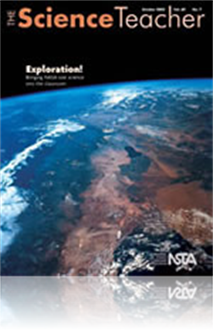All Resources
Journal Article
The United States faces the critical task of graduating large numbers of individuals in mathematics, science, technical, and engineering fields. The first-year orientation course described uses female-friendly practices to provide support, promote ac...
Journal Article
Envision: Inquiry-Based Environmental Science
Team up with scientists and other teachers to develop inquiry-based research projects. This article describes the Envision program, which allows teachers to design and conduct their own environmental investigations. Teachers become students of the in...
Journal Article
Reading, Writing, and Comprehending: Encouraging active reading in the science classroom
A wide variety of before-, during-, and after-reading methods stimulate students to become better readers. The author shares strategies acquired from professional development courses that teachers can use to improve reading comprehension and incorpor...
Journal Article
Allelopathy is a naturally occurring process by which chemicals produced by a plant have a detrimental effect on competing plants. This activity explores how trees protect their limited resource through chemical warfare....
Journal Article
Investigating Microgravity: Using inquiry, students study objects in a weightless environment
In classroom discussions, students often have misconceptions about how objects behave in a weightless environment. This article provides instruction on how to create a weightless environment in the classroom to enable students to examine the behavior...
Journal Article
The Idea Bank provides tips and techniques for creative teaching, in about 1,000 words. In this month’s Idea Bank learn about other potential uses for slime, in addition to polymer chemistry and materials engineering....
Journal Article
After the Bell: Measure for measure
Students are asked to measure objects almost every day, but a number of students omit units when providing an answer. In this article learn why units are so important....
Journal Article
If we want to encourage children to enter into scientific fields in the future, we need to give them a helping hand while they are most open-minded and curious. In this article, the author shares anecdotal stories from the scientific community that r...
Journal Article
Science Sampler: Role playing in the science classroom
By presenting material in a unique and amusing way, students will remember the material better and comprehend more....






